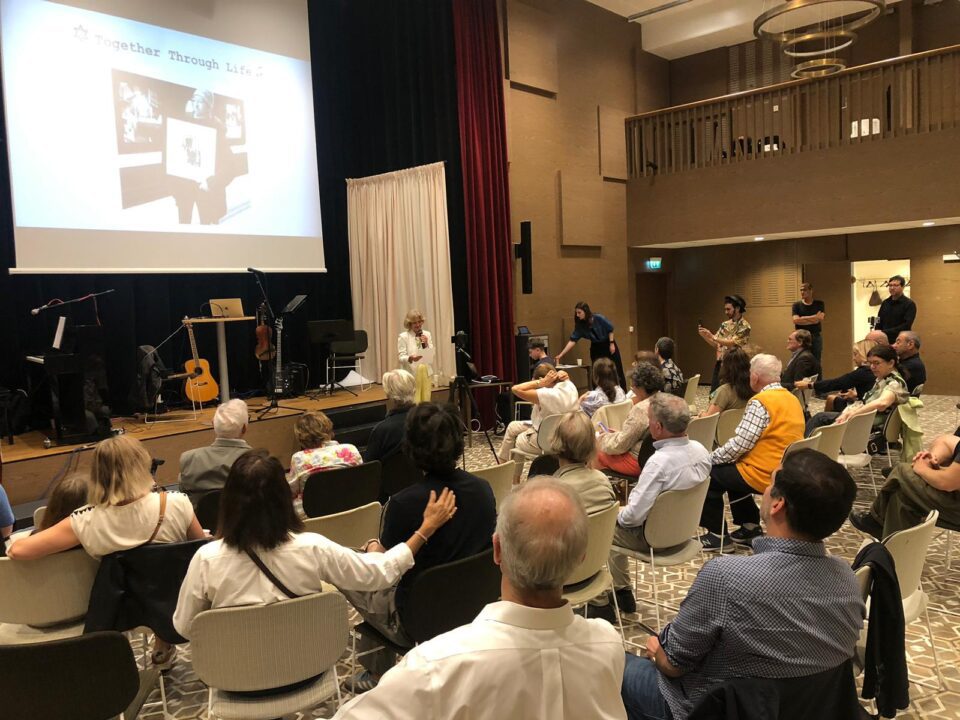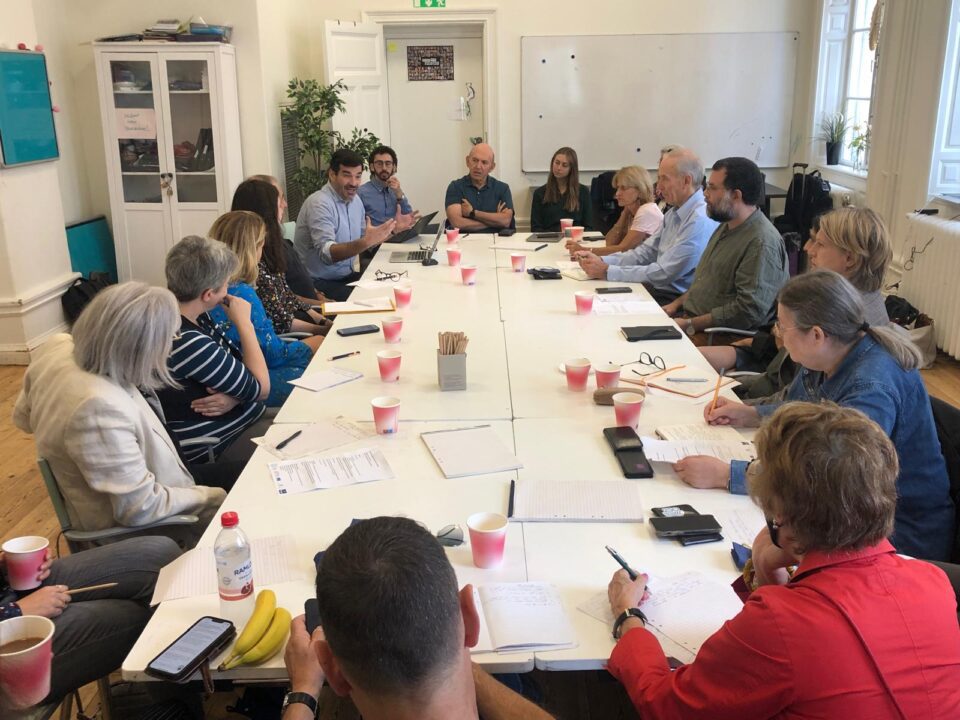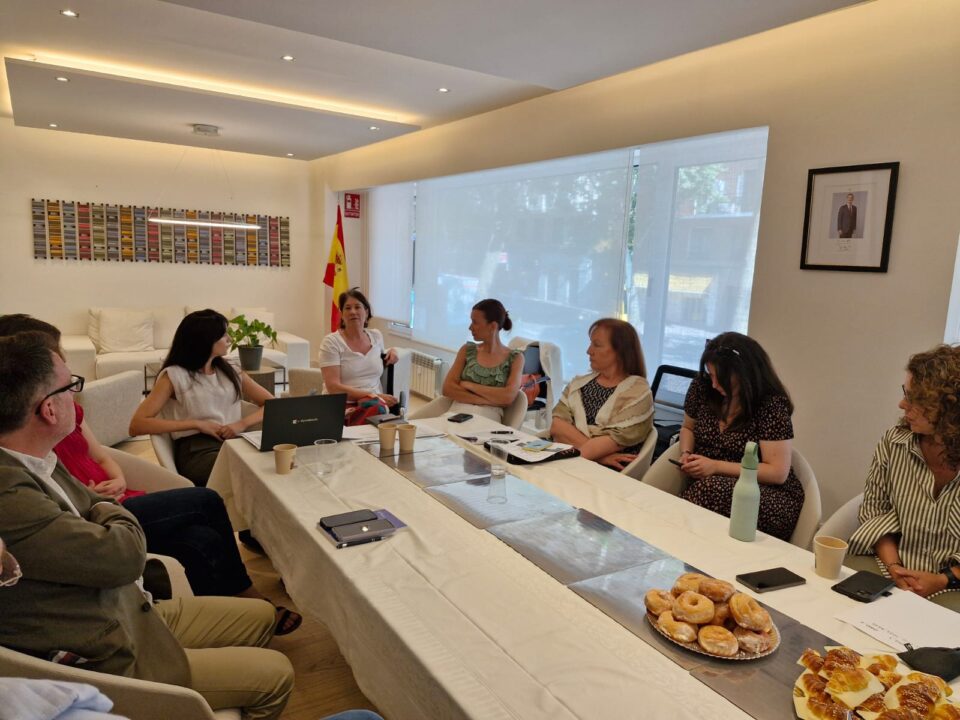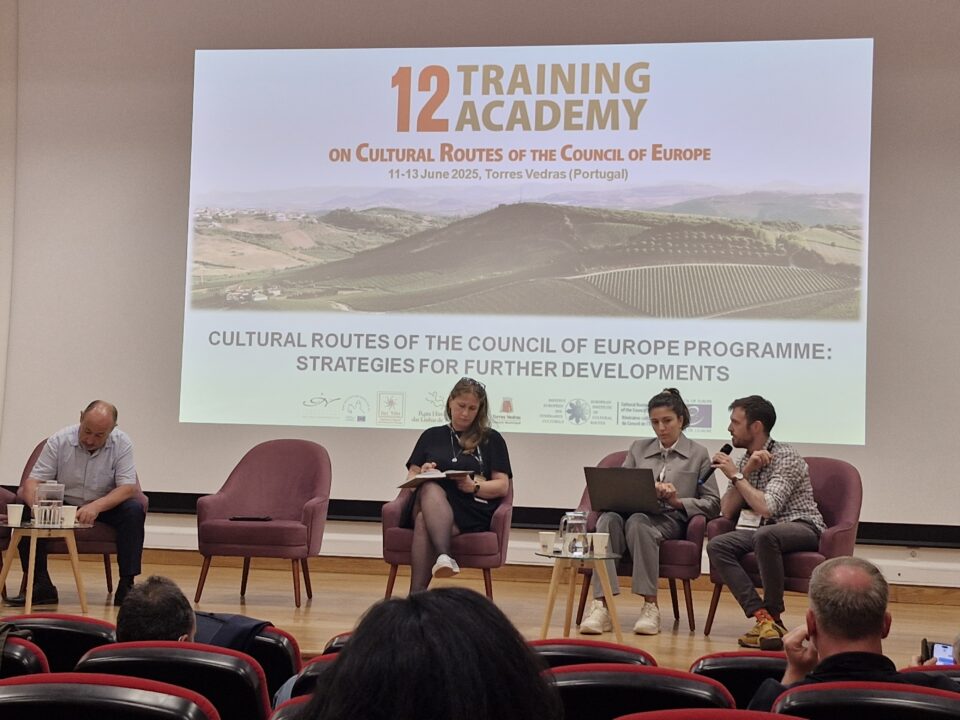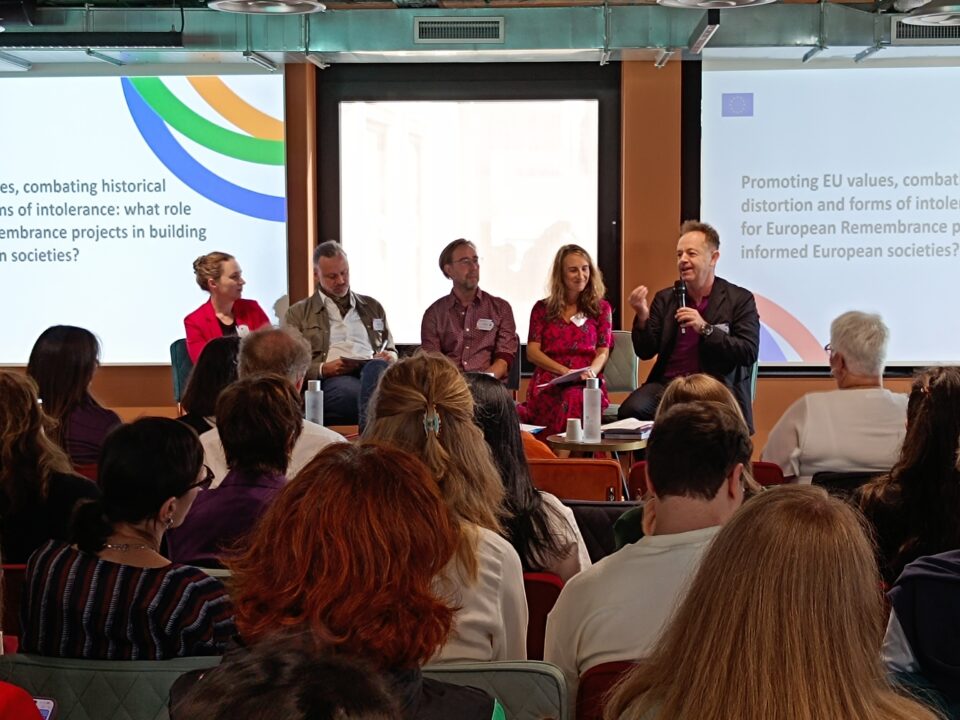- Filter by
- Categories
- Tags
- Authors
- Show all
- All
- AEPJ News
- Andalusia
- Austria
- Azerbaijan
- Balti
- Belarus
- Bendery
- Braunschweig
- Celle
- Chisinau
- EDJC old editions
- EDJC22
- EDJC23
- EDJC24
- EDJC25
- France
- Georgia
- Germany
- Girona
- Hannover
- Hildesheim
- Italy
- Izmir
- Lithuania
- Medieval Route
- Moldova
- National Route
- Orhei
- Padua
- Palaces, Villas and Country Houses
- Poland
- Regional Route
- Rhineland
- Rybnitsa
- Soroca
- Spain
- Thematic Route
- Tiraspol
- Turkey
- Ukraina
- Uncategorized
The European Days of Jewish Culture (EDJC) 2025 officially kicked off on Sunday 7 September, marking the start of a continent-wide festival dedicated to Jewish heritage and culture. This year’s theme, “People of the Book”, highlights the enduring significance of the written word in Jewish life and its deep connections with Christianity and Islam.
A delegation of representatives from the AEPJ team and board of directors attended the opening activities in Stockholm, where the local Jewish community is celebrating 250 years of history. Their rich programme of activities was organised by Paideia: The European Institute for Jewish Studies in Sweden and Judiska Församlingen i Stockholm (Jewish Community of Stockholm). AEPJ’s General Secretary, Noemi Di Segni, delivered an inaugural address.
Across Europe, more than 25 countries marked the launch with diverse events, from walking tours to concerts and open-door visits.
This week in Stockholm, representatives of the AEPJ team (director Victor Sorenssen, EDJC manager Alina Marincean and communications officer Paul Sánchez) and the AEPJ board of directors (general secretary Noemi Di Segni, treasurer Patrick Bikard and board member Taly Mair) held a series of productive meetings with leading Swedish institutions, NGOs, government agencies, and cultural actors dedicated to preserving and promoting Jewish heritage.
The delegation was warmly received by a wide range of partners, including the Swedish Holocaust Museum, the Living History Forum, the Jewish Youth Association of Sweden (JUS), Paideia – The European Institute for Jewish Studies, the Institute for Language and Folklore (Isof), the Swedish Yiddish Association, Paideia Folkhögskola, the Home of Israeli Culture in Sweden, the Jewish Community of Stockholm, the Jewish Central Council, the National Library of Sweden, the Swedish Arts Council, and the Association for Jewish Culture in Sweden.
This past week, AEPJ successfully held two important stakeholder consultation meetings in Madrid and Barcelona as part of the development of the National Report Card for Spain, within the framework of the European project NOA – Networks Overcoming Antisemitism. Funded by the European Commission, NOA seeks to support EU Member States in developing comprehensive strategies to prevent and combat antisemitism while fostering vibrant Jewish life.
The National Report Cards are a cornerstone of the NOA project. They provide a detailed, evidence-based assessment of national policies in key areas such as education, culture, security, and community participation, offering guidance to strengthen conditions for Jewish life across Europe. The methodology combines desk research, interviews with key actors, and participatory workshops, aligning with European and international standards.
From 11 to 13 June 2025, the AEPJ – European Association for the Preservation and Promotion of Jewish Culture and Heritage – took part in the 12th edition of the Cultural Routes Training Academy of the Council of Europe. Held across Torres Vedras, Arruda dos Vinhos, and Vila Franca de Xira in Portugal, the event brought together over 70 participants representing more than 30 certified Cultural Routes of the Council of Europe.
The Training Academy, jointly organised by the European Institute of Cultural Routes, the European Federations of Napoleonic Cities and Iter Vitis, and several Portuguese institutions, was dedicated this year to the theme of “Cooperation and Cultural Routes.” It served as a unique platform for capacity building, strategic dialogue, and cross-route exchange.
On June 12th, AEPJ took part in the Remembrance Cluster Meeting held in Brussels, organised by the European Commission (DG JUST) and the European Education and Culture Executive Agency (EACEA). The meeting brought together all beneficiaries of the CERV-REM programme from the 2023 and 2024 calls, offering a unique opportunity for exchange, reflection and future collaboration.
AEPJ was present as one of the partner organisations of the project Mi Dor Le Dor Europe, selected under the 2023 REM call. This ambitious initiative aims to strengthen transnational networks of educators working with Jewish memory and heritage in Europe. The project supports teachers and heritage professionals in developing and implementing educational experiences such as city walks, classroom activities or games, that make Jewish history visible and relevant in today’s European societies.
Under the leadership of the Jewish Heritage Network, the EMDS Blueprint project has been launched with the goal of developing an online platform that interconnects digital information sources related to the legacy and memory of the Holocaust. This initiative fosters a dialogue between specialized sectors in the digital field and leading professionals across Europe working in Holocaust memory—a field in which many AEPJ members particularly excel.
Hosted by the National Holocaust Museum in The Netherlands, the event promoted a cross-sectoral debate among professionals aimed at identifying key needs, challenges, risks, strengths, and opportunities encountered by those working in Holocaust heritage and memory and those working on digital platforms. The confluence between both fields is addressed not only as a space for visibility but also as a domain for knowledge exchange and a catalyst for action in awareness-raising, education, and content creation based on existing data.
On 4 June 2025, the city of Trnava hosted the conference “Slovenská cesta židovského kultúrneho dedičstva” (The Slovak Jewish Heritage Route), held at the Synagogue – Center for Contemporary Art of the Ján Koniarek Gallery. The event brought together experts, local authorities, cultural professionals, and community leaders to explore the development and promotion of Jewish heritage in Slovakia, and its integration into a broader European framework.
The conference was held under the auspices of the Trnava County Governor Jozef Viskupič. It was co-organised by the Regional Tourism Organization of the Trnava Region, in cooperation with the University of Trnava and the Slovak Jewish Cultural Heritage Foundation Menorah, which also serves as the coordinator of the Slovak Jewish Cultural Heritage Route.
The European Days of Jewish Culture 2025 is officially underway, and the first key resources are now available to help organizers begin planning their local activities. This year’s theme, “People of the Book”, invites a deep exploration of Jewish culture through the lens of literature, storytelling, education, and memory, offering communities a rich and meaningful starting point to connect past and present through the written word.
At the heart of this launch is the official EDJC 2025 poster, now available for download in multiple formats via the EDJC website. Developed in close collaboration with the EDJC Coordinators Committee, the poster is both symbolic and inclusive. The image of abstract human figures intertwined with towering bookshelves, visually reflects the idea that each person is a book, and that Jewish heritage is a living library, passed on through generations.


